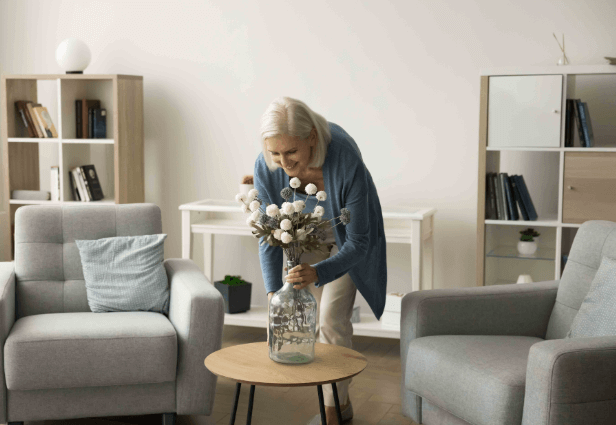Minimalist Living: Embracing a Clutter-Free Lifestyle

Minimalist living is a transformative approach to life that focuses on reducing excess and prioritizing what truly matters. By embracing simplicity, individuals can cultivate a lifestyle that fosters clarity, purpose, and contentment. This growing movement has captured the attention of people worldwide, offering a solution to the overwhelm of consumer culture and the endless accumulation of possessions.
What is Minimalist Living?
Minimalist living is a philosophy that centers around intentionally removing clutter—both physical and mental—to make room for meaningful experiences and relationships. It is not about depriving oneself or living with the bare minimum but rather about curating an environment and lifestyle that align with personal values. Minimalism challenges the notion that happiness is tied to material possessions and instead encourages individuals to seek fulfillment through purpose and intentional living.
The Benefits of Minimalist Living
1. Reduced Stress and Anxiety
Clutter can contribute to feelings of overwhelm and stress. A clutter-free space fosters a sense of calm and clarity, creating an environment where the mind can focus and relax.
2. Financial Freedom
Adopting a minimalist lifestyle often involves rethinking spending habits. By prioritizing quality over quantity and avoiding unnecessary purchases, individuals can save money and reduce financial stress.
3. Increased Productivity
Minimalism eliminates distractions, enabling individuals to focus on their goals and priorities. A clear workspace, for example, can boost creativity and efficiency.
4. Environmental Benefits
Minimalist living aligns with sustainable practices. Consuming less and choosing eco-friendly alternatives reduces waste and minimizes the environmental impact.
5. Enhanced Relationships
Focusing less on material possessions allows individuals to dedicate more time and energy to building meaningful connections with family, friends, and their community.
Steps to Embrace Minimalist Living
1. Declutter Your Space
The journey to minimalism begins with decluttering. Start by sorting belongings into categories such as “keep,” “donate,” and “discard.” Evaluate each item’s value and whether it contributes to your well-being or purpose. Begin with a single area, such as a closet or drawer, to avoid feeling overwhelmed, and gradually work through your entire home.
2. Adopt a “Less is More” Mindset
Minimalism is about intentionality. Avoid purchasing items impulsively and consider whether each purchase aligns with your values and needs. Ask yourself if the item adds genuine value to your life or is simply a fleeting desire.
3. Simplify Your Wardrobe
A minimalist wardrobe, often called a capsule wardrobe, consists of versatile, high-quality pieces that can be mixed and matched. Reduce your clothing collection to essentials that you truly love and wear regularly.
4. Create a Functional Home
Organize your living space to emphasize functionality and simplicity. Choose furniture and decor that serve a purpose and bring joy. Limit decorative items to a few meaningful or aesthetically pleasing pieces.
5. Digitally Declutter
Minimalism extends beyond physical possessions. Declutter your digital life by organizing files, deleting unused apps, and unsubscribing from unnecessary emails. Simplifying your digital environment can enhance focus and reduce screen time.
6. Practice Gratitude
Gratitude is a cornerstone of minimalist living. Appreciating what you already have fosters contentment and reduces the urge to acquire more. Regularly reflect on the positive aspects of your life and express gratitude for them.
Minimalism Beyond Possessions
Minimalism is not just about reducing physical clutter—it’s a mindset that can be applied to all areas of life.
1. Time Management
Simplify your schedule by prioritizing commitments that align with your goals and values. Learn to say no to activities or obligations that do not add value to your life.
2. Mindful Consumption
Minimalism encourages conscious consumption. Support ethical and sustainable brands, choose quality over quantity, and avoid products with excessive packaging or harmful environmental impacts.
3. Mental Clarity
Adopting minimalist practices can help reduce mental clutter. Techniques such as meditation, journaling, and mindfulness foster a clear and focused mind.
4. Relationships
Minimalism promotes intentional relationships. Focus on building deep, meaningful connections with people who enrich your life, and let go of toxic or superficial relationships.
Common Misconceptions About Minimalism
Some people associate minimalism with austerity or extreme deprivation, but this is a misunderstanding. Minimalist living is not about owning as little as possible but about surrounding yourself with what adds value to your life. Others believe minimalism is only for people who can afford to buy expensive, high-quality items. However, minimalism is a flexible practice that anyone can adopt by making intentional choices within their means.
The Challenges of Minimalist Living
Transitioning to a minimalist lifestyle can be challenging, particularly for those accustomed to consumer-driven habits. Emotional attachments to possessions, fear of scarcity, and societal pressure to conform to materialistic norms can create resistance. Overcoming these obstacles requires self-reflection, perseverance, and a willingness to challenge ingrained beliefs about happiness and success.
The Future of Minimalist Living
Minimalism is more than a trend—it is a response to the growing awareness of the environmental, social, and emotional costs of overconsumption. As more people adopt minimalist practices, the movement is likely to influence industries, communities, and cultural norms, encouraging a shift toward sustainability and intentionality. The integration of minimalism with technology, such as smart home devices that promote efficiency and simplicity, will further support this evolution.
Conclusion
Minimalist living offers a path to a more intentional, clutter-free, and fulfilling life. By focusing on what truly matters and letting go of excess, individuals can experience greater peace, clarity, and happiness. Whether through decluttering, mindful consumption, or simplifying schedules, embracing minimalism allows people to live with purpose and authenticity. In a world increasingly defined by abundance and distraction, minimalism serves as a reminder that less is often more, and simplicity can lead to profound fulfillment.





